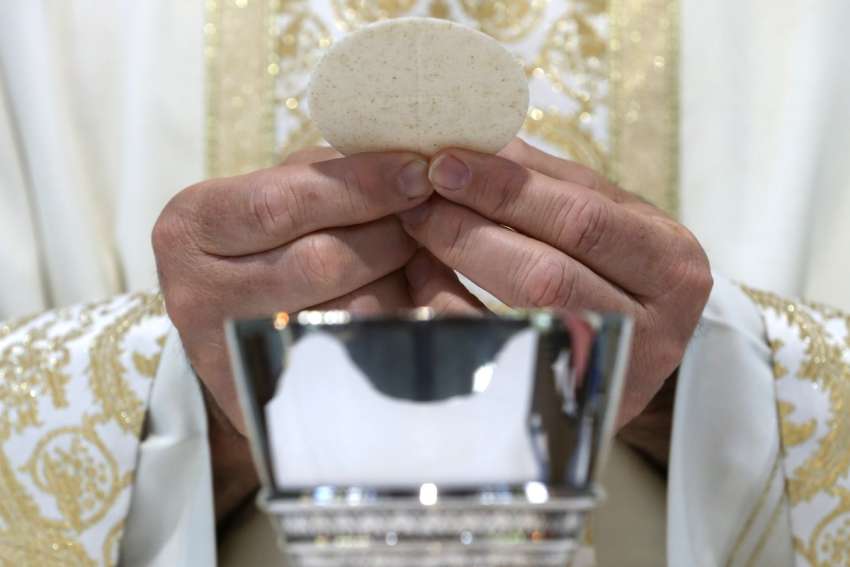Deuteronomy insisted that God had used hunger and miraculous feeding to teach the Israelites a lesson — how to trust God without reservations or doubts. God led them through a grueling 40-year experience in an arid and absolutely inhospitable wilderness. God brought water forth from the rock and fed them with manna from Heaven — impossible under normal circumstances. This was to teach them who was their protecter and sustainer. Nothing was accomplished by their own efforts; in fact, they regularly sabotaged God’s plans with their complaining, rebellion and betrayal. The brutal conditions and the impossibility of surviving on their own humbled them and broke their arrogance and pride. They had to learn that God was the sole source of their sustenance and strength.
Human arrogance is a terrible and destructive force. When we attempt to do things totally apart from God and from divine principles, greed, fear and lust for power dominate our efforts. Our mighty projects are fatally compromised. This applies to individuals as well as all human groups — cities, nations, organizations and religions. And in many of those cases, it is only by having everything stripped away that we can come to our senses and recognize the one who is really in charge.
This is exactly what is taking place at the present time. We cannot simply put everything back together again. A true change of mind and heart is called for, along with a resolve to proceed with God alone as our guiding star and provider. When we are faced with difficulties, upon what or whom do we rely for support and strength? If it is anything other than God, we are in for a bumpy ride.
Paul highlights the Eucharist as the source of strength for believers in Christ. That is certainly true, but with a couple of qualifiers. It is the source of strength and unity for the community, not just individuals. For many people it is a private source of grace and strength apart from the assembly of worshippers. The second qualifier is that of unity of minds and hearts. Paul rightly stressed one body and one bread, but are we all part of one body in our attitudes and feelings? All too often, there is disunity in Christian communities, sometimes even to the point of ideological warfare. We cannot sing of one bread and one body unless we are willing to live it.
“Eat my body and drink my blood!” These were shocking words when they were first uttered, and they remain so today. That is, unless we have heard them so many times that they have lost their ability to affect us. It was immediately after this incident that the first defections occurred — it was simply too much for some of them. But as with all things in John’s Gospel, the truth lies below the surface and the literal meaning of the words. Just as food that we ingest becomes part of our physical, psychological and spiritual makeup, so must Christ become part of ours. Jesus Christ must become our food and sustenance, and our nourishment and strength must come from Him.
The life of all living things was believed to be in the blood. In a similar fashion, the life of Christ must be in us and become part of our blood. It is by this transformation that we become full participators in the divine life to which Jesus invites us. There are many ways that we can drink the blood and eat the flesh of Jesus. The Eucharist to be sure, but also prayer, meditation, spiritual study, a life of patience, humility and kindness, good words and unceasing acts of compassion and mercy. This far surpasses the manna in the desert because this nourishment and sustenance is forever. What Jesus is, we must become.


